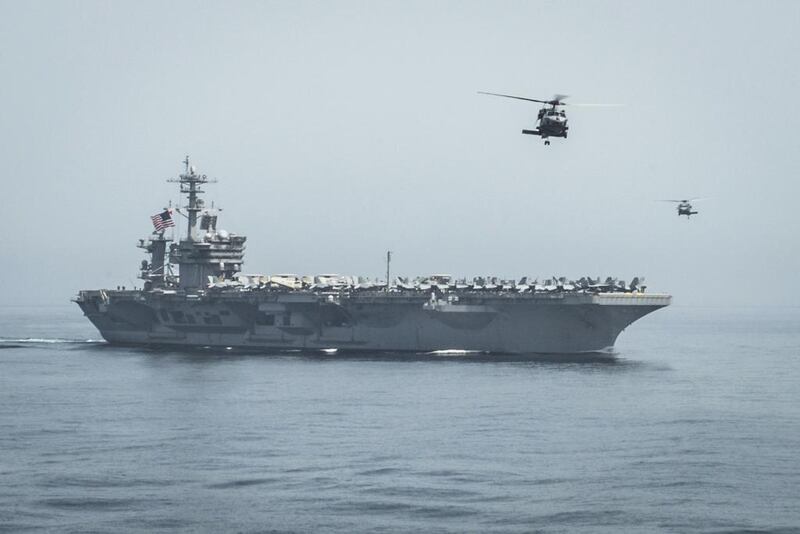In May, an Iranian cargo ship believed to be delivering weapons to Houthi rebels in Yemen, in violation of a United Nations arms embargo, was closely shadowed by an American warship stationed in the Arabian Gulf. The presence of the American ship sent an important message to Tehran that its actions in Yemen and beyond are carefully monitored and carried consequences. For decades, the American naval presence in the Arabian Gulf has been a physical message of Washington’s commitment to protect its allies and maintain stability in this region.
The announcement that the US navy will be pulling its sole aircraft carrier out of the Gulf this autumn, as The National reported yesterday, sends the wrong signals at a time of regional tension. Thanks to overdue maintenance the USS Theodore Roosevelt will leave the Gulf sometime in October. It will not be replaced for at least two months, because carrier deployments will be refocused on the Asia-Pacific region.
While many analysts say that this short-term gap is not militarily significant and note that the US maintains a huge amount of firepower in the region, the decision could be interpreted the wrong way. Given the continuing war in Yemen, Iran’s growing influence in the region and the expanding fight against ISIL militants, it seems ill-advised to remove one of the most visible cornerstones of American military power in the heart of the region, for even a limited amount of time. Moreover, the US nuclear deal with Iran has underlined concerns in Arabian Gulf countries that Tehran will now be emboldened to further destabilise the region.
The carrier announcement comes on the heels of America’s decision to remove several Patriot missile batteries from Turkey’s border with Syria. The batteries were put in place in 2013 over fears that Bashar Al Assad would target Turkey, a Nato member, with missiles. They served as an important physical message of America’s presence on Syria’s doorstep. Last week, the Pentagon said that the Patriot missiles “will be redeployed to the United States for critical modernisation upgrades”. The move suggests Washington’s continued frustration with Ankara’s involvement in Syria despite Turkey’s recent opening of the Incerlik airbase to anti-ISIL coalition aircraft.
We don’t question America’s resolve in the Middle East, but Washington must be careful to send the right messages at this time of heightened tension in the region. After all, we are in the midst of a battle for hearts and minds as much as stability and safety.





